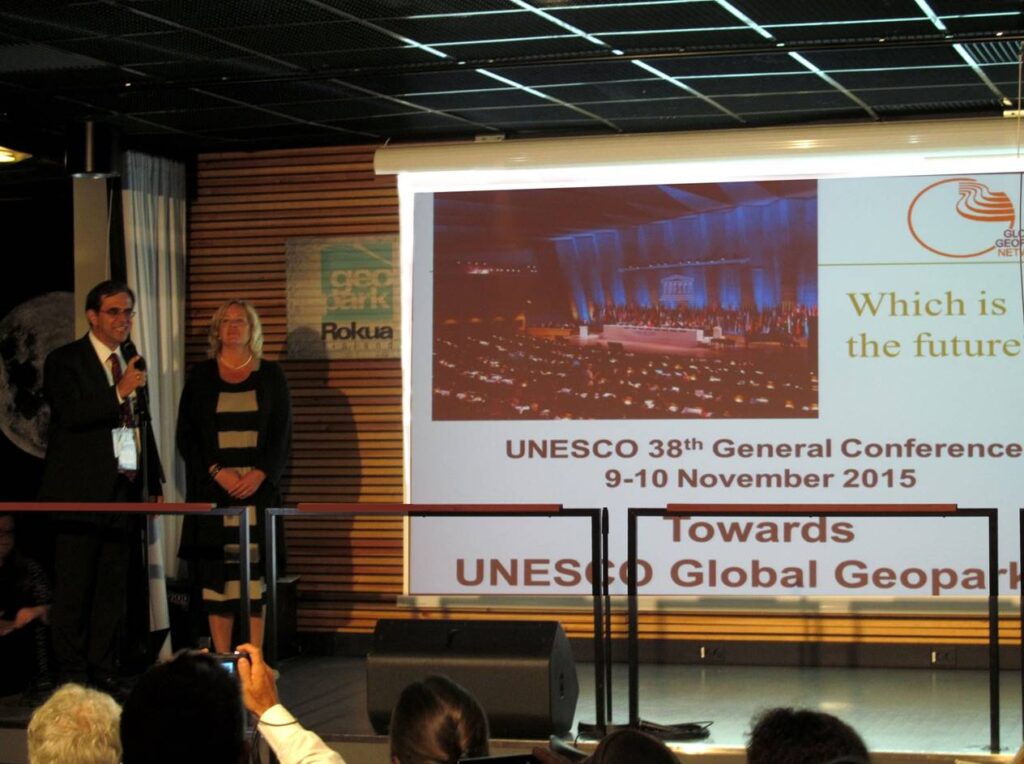On September 3-5, 2015, IAT Chairperson Paul Wylezol attended the European Geoparks Conference in Oulu, Finland, where he gave a presentation on the International Appalachian Trail and its connection to Global Geoparks. The IAT crosses 12 Global Geoparks and Aspiring Geoparks in Canada, Western Europe and Morocco.
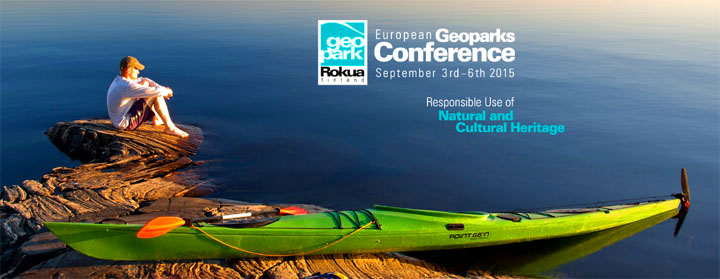
The 3-day event was held at the University of Oulu and the nearby Rokua Geopark, and was attended by over 400 representatives from European, Canadian and other Global Geoparks and Aspiring Geoparks.
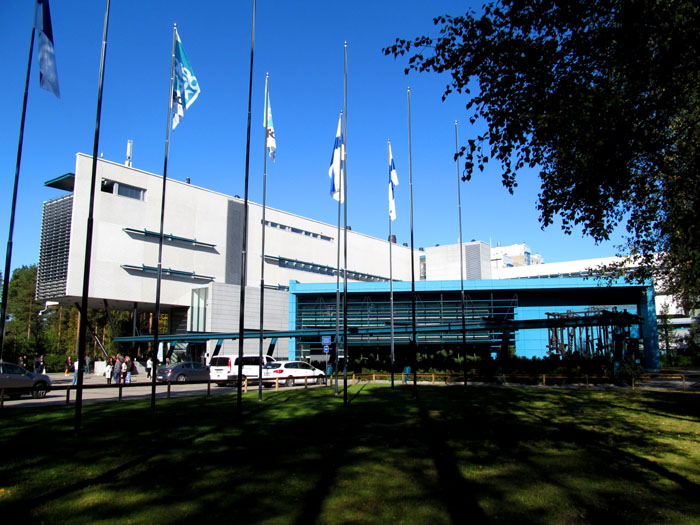
Day One began with opening welcome by local officials – including Conference Chair Vesa Krökki – and keynote speeches by Global Geoparks President Professor Nickolas Zouros and UNESCO Representative Dr Margarete Patzak
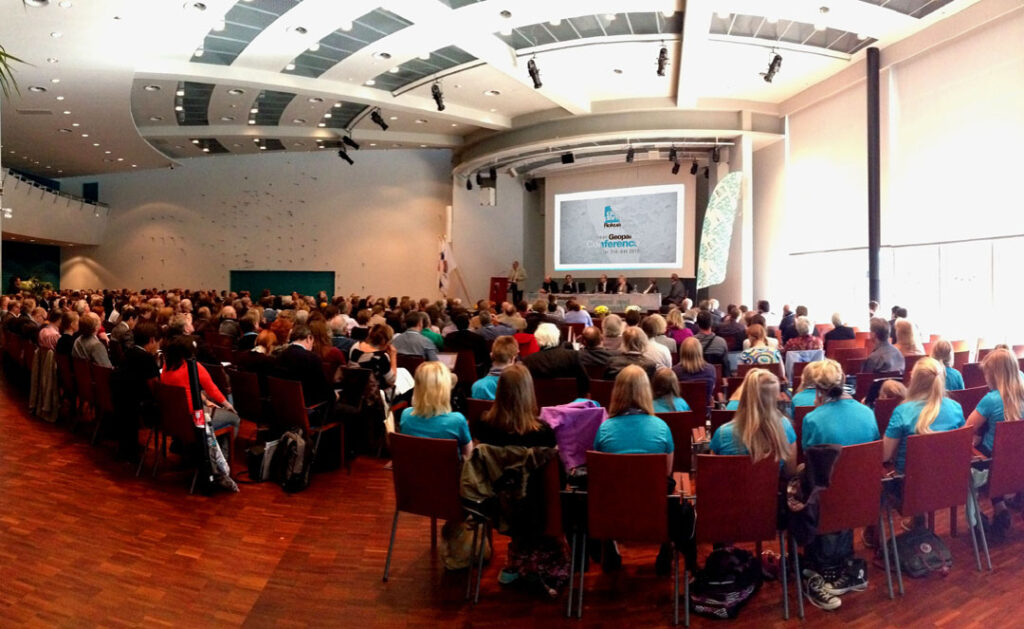
followed by a variety of themed presentations by geopark, tourism and conservation organizations.

Many focused on the development and maintenance of Global Geoparks

while the IAT presentation – entitled International Appalachian Trail partners with European Geoparks – introduced the IAT and its potential connection between Geoparks found along the IAT route, and was given in association with Carlos Neto de Carvalho and IAT partner Naturtejo Geopark of Portugal.
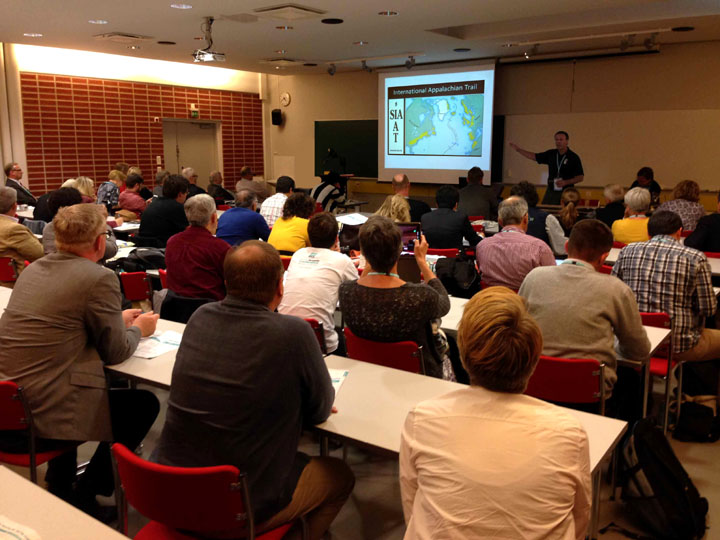
Day Two was reserved for field trips to Rokua Geopark or a walking tour of the city of Oulu.
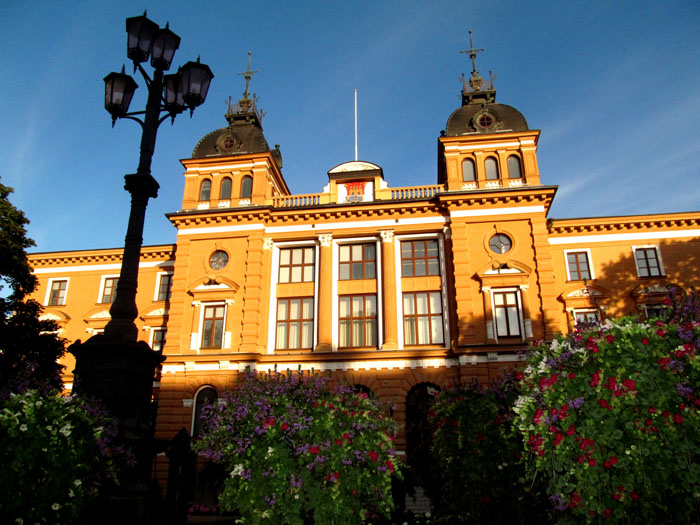
Day Three began with a keynote presentation by Dr Rauno Väisänen, Director of Metsähallitus Parks & Wildlife Finland followed by more presentations on themes such as conservation, education and communication.
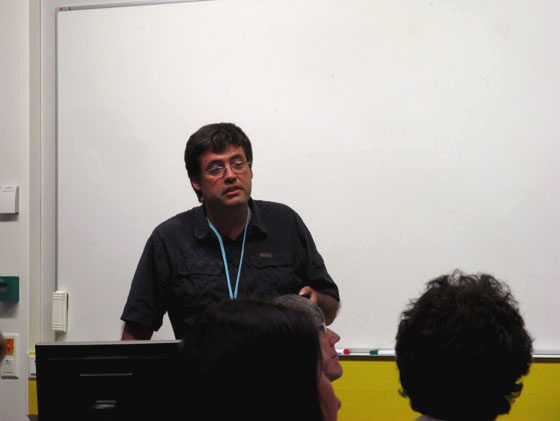
During coffee and lunch breaks between sessions, participants used the opportunity to view poster presentations and interact with guest presenters and geopark representatives.
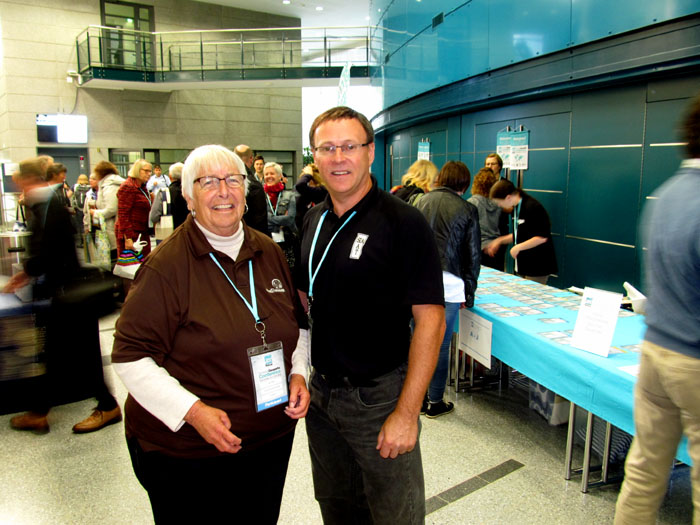
Day Three ended with a closing dinner at Rokua Health & Spa Hotel where Global Geoparks President Nickolas Zouros announced the results of the 2015 Geopark re-evaluations and welcomed 5 new European Geoparks, bringing the total to 69. He also repeated a Day One prediction that the Global Geoparks Network will receive full UNESCO designation (on par with World Heritage Sites) during the 38th UNESCO General Conference in November, thereby becoming UNESCO Global Geoparks.
